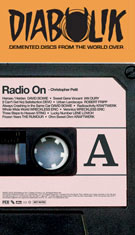
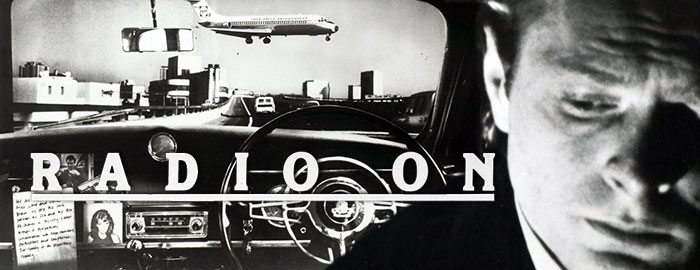
B&W, 1979, 104 mins. 53 secs.
Directed by Christopher Petit
Starring David Beames, Sandy Ratcliff, Lisa Kreuzer, Sting
Fun City Editions (Blu-ray) (US RA HD), BFI (Blu-ray & DVD) (UK RB/R2 HD/PAL), Plexifilm (DVD) (US R1 NTSC) / WS (1.85:1) (16:9)
Partially funded by the British Film Institute and an art  film down
film down 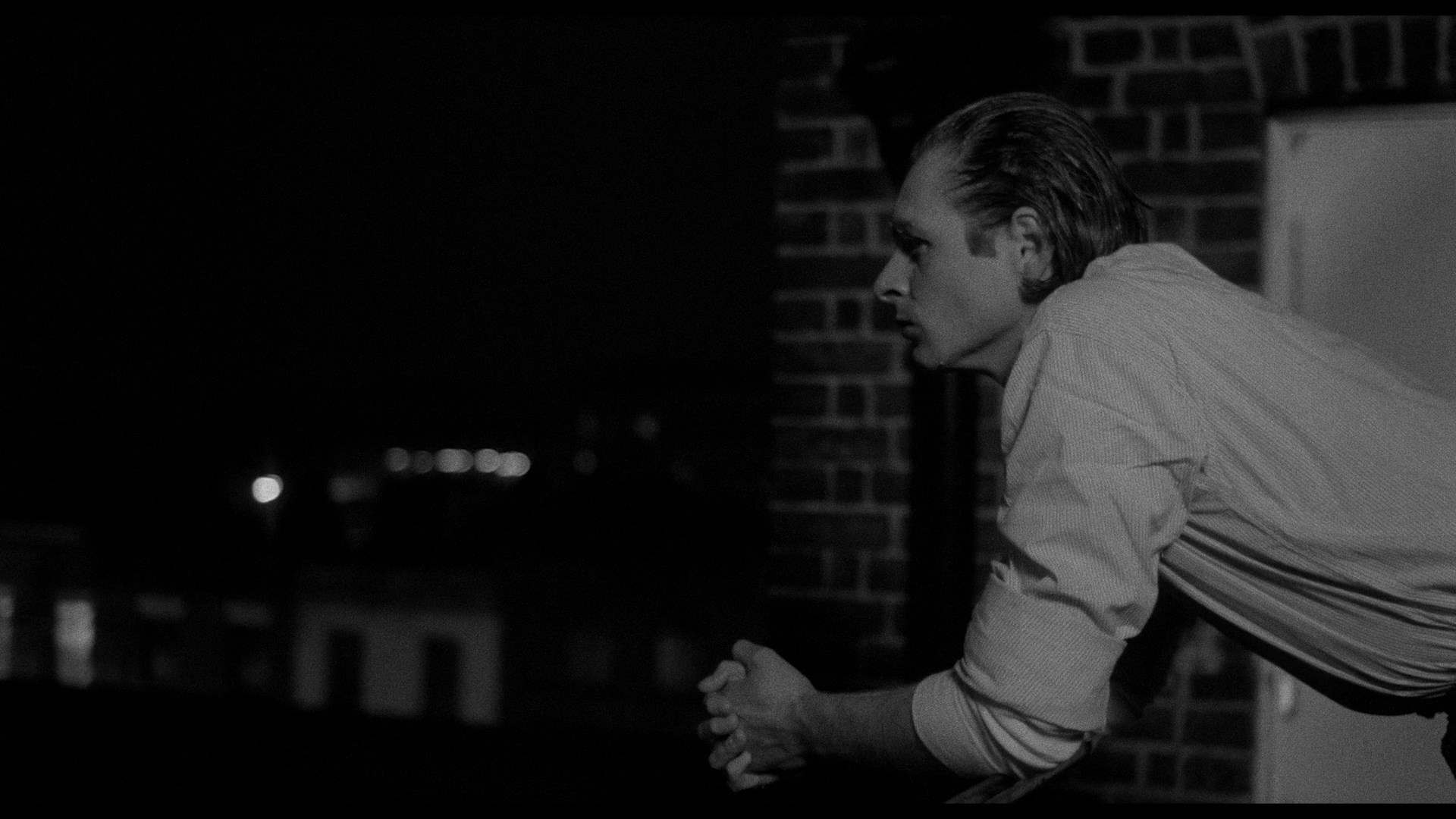 to its core, Radio On is a fascinating, black-and-white intersection between the beautiful monochrome road films of New German Cinema (right down to retaining Wim Wenders as an associate producer here, plus his camera operator Martin Schafer as cinematographer and funding from Wenders' Road Movies Filmproduktion) and the hip, modernist strain of indie film that would become a mainstay throughout the '80s (and an explosion in the '90s). That latter aspect is most obvious in its incredible soundtrack, which opens with David Bowie's hybrid English-German recording of "Heroes" and offers a slate of great new wave, electronic, and punk offerings from Kraftwerk, Devo, Robert Fripp, Wreckless Eric, Lene Lovich, and Ian Dury & The Blockheads -- not to mention some acoustic strumming and singing from Sting, whose first hits with The Police had just landed.
to its core, Radio On is a fascinating, black-and-white intersection between the beautiful monochrome road films of New German Cinema (right down to retaining Wim Wenders as an associate producer here, plus his camera operator Martin Schafer as cinematographer and funding from Wenders' Road Movies Filmproduktion) and the hip, modernist strain of indie film that would become a mainstay throughout the '80s (and an explosion in the '90s). That latter aspect is most obvious in its incredible soundtrack, which opens with David Bowie's hybrid English-German recording of "Heroes" and offers a slate of great new wave, electronic, and punk offerings from Kraftwerk, Devo, Robert Fripp, Wreckless Eric, Lene Lovich, and Ian Dury & The Blockheads -- not to mention some acoustic strumming and singing from Sting, whose first hits with The Police had just landed.
Introverted disc jockey Robert (Beames) gets a package in the mail featuring a simple birthday note from his brother and a trio of Kraftwerk cassettes. That moment turns into a catalyst for a music-fueled drive from his spare apartment in London to Bristol 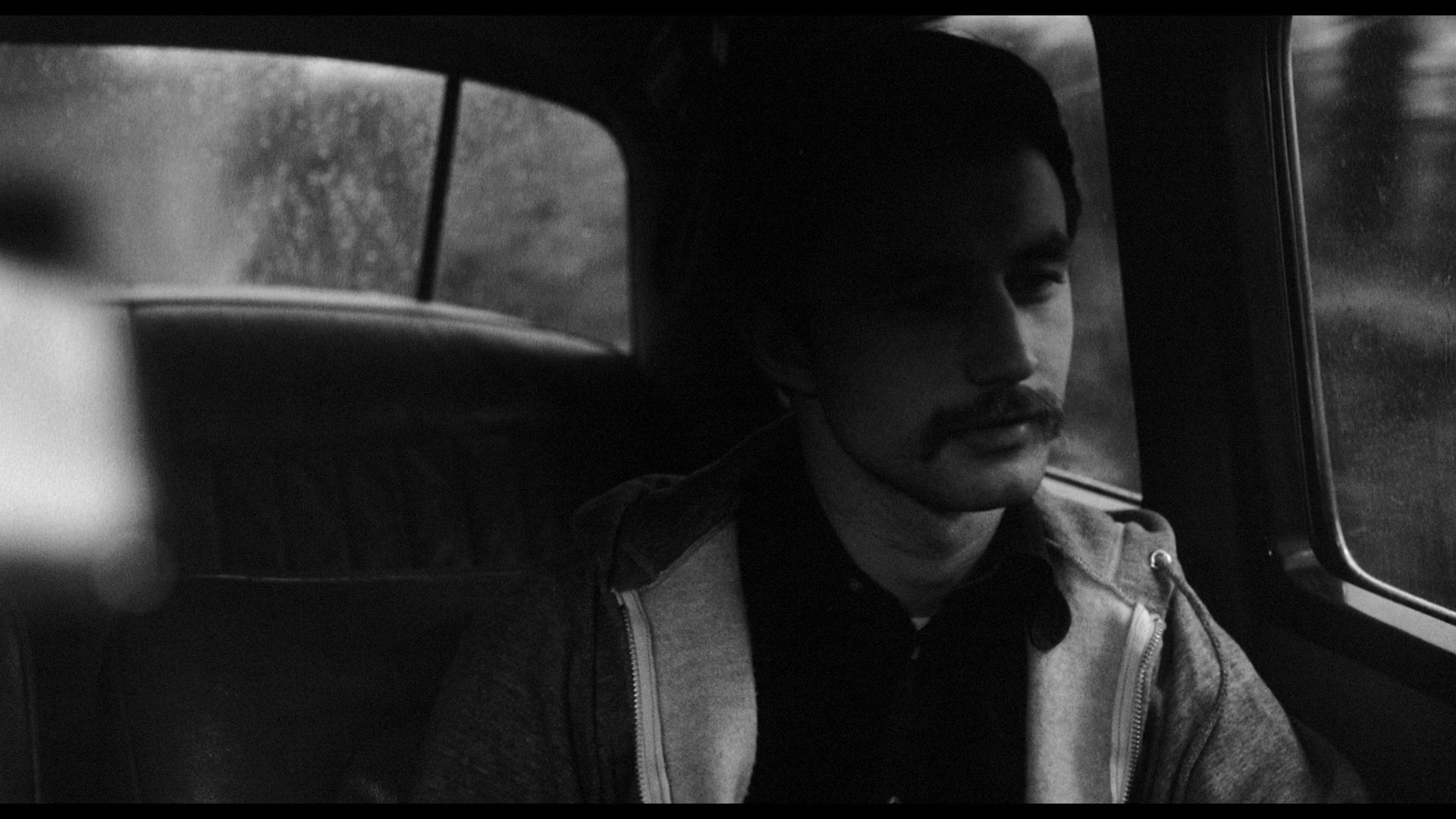 where he hopes to find out some answers, but what's set up as a mystery turns into a
where he hopes to find out some answers, but what's set up as a mystery turns into a 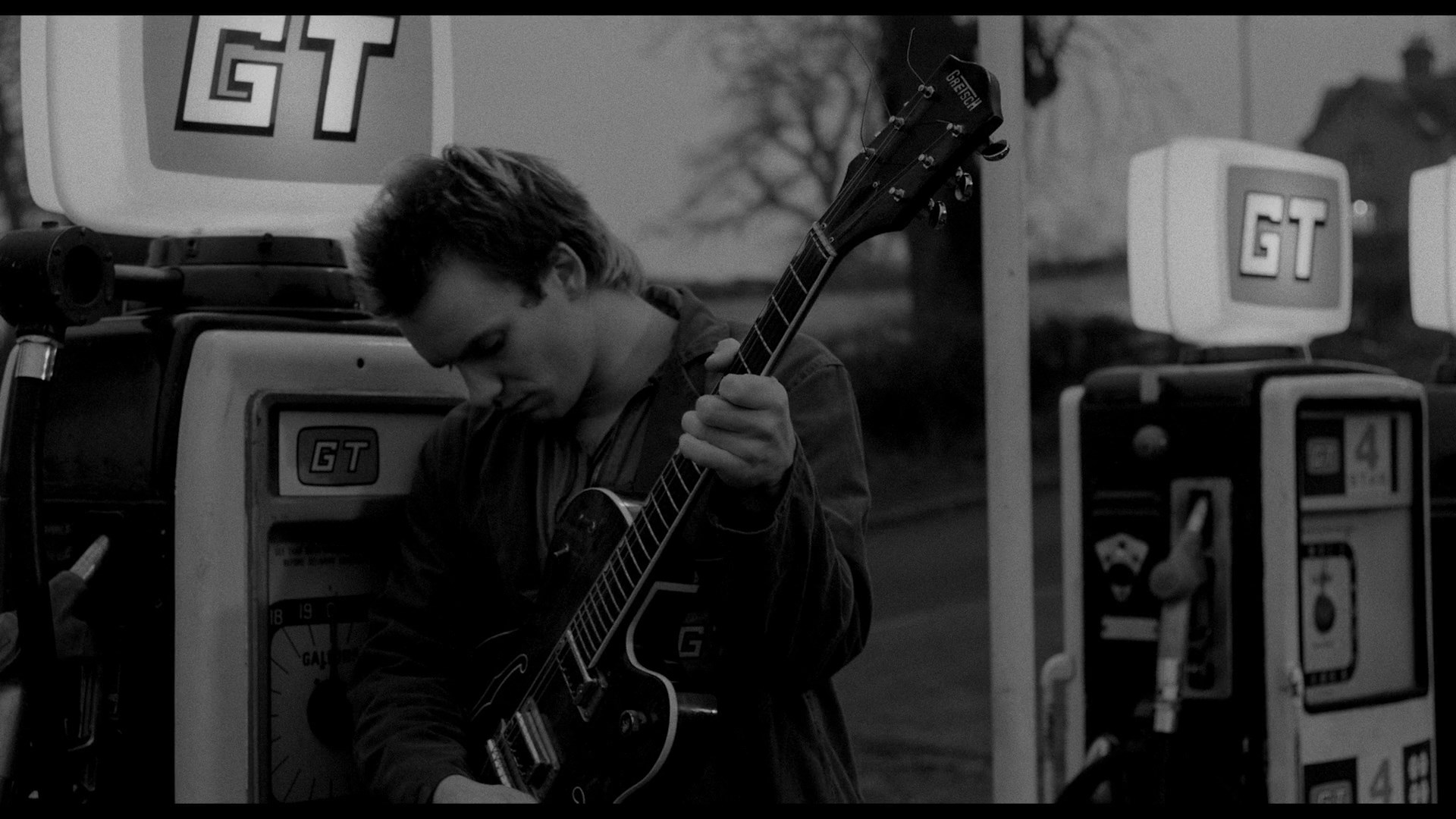 string of encounters ranging from very brief to lengthy with the landscape delivering a wide variety of people along the way. Among them is Ingrid (Kreuzer), played by Wenders' onetime wife and cinematic muse in his classic road trilogy (Alice in the Cities, Kings of the Road, The Wrong Move) and The American Friend, another of the nods included by writer-director Chris Petit in his feature debut; the rest of his career is relatively more accessible including his 1982 remix-style interpretation of P.D. James' An Unsuitable Job for a Woman and a trip to West Germany with the thriller Chinese Boxes. Anyone expecting his later thriller work to be mirrored here will probably be baffled by the lack of a typical question-and-answer narrative, but if you're on its music-propelled wavelength at the beginning, you should click with it rather quickly.
string of encounters ranging from very brief to lengthy with the landscape delivering a wide variety of people along the way. Among them is Ingrid (Kreuzer), played by Wenders' onetime wife and cinematic muse in his classic road trilogy (Alice in the Cities, Kings of the Road, The Wrong Move) and The American Friend, another of the nods included by writer-director Chris Petit in his feature debut; the rest of his career is relatively more accessible including his 1982 remix-style interpretation of P.D. James' An Unsuitable Job for a Woman and a trip to West Germany with the thriller Chinese Boxes. Anyone expecting his later thriller work to be mirrored here will probably be baffled by the lack of a typical question-and-answer narrative, but if you're on its music-propelled wavelength at the beginning, you should click with it rather quickly.
Barely released in theaters, Radio On started to build up a bit of a following once it hit home video including a UK VHS and its first DVD, a 2007 U.S. release from Plexifilm. Though hampered by very aggressive noise reduction that obliterated all of the original distinctive film grain, this was still an acceptable way to make the film's acquaintance and came with one interesting video extra: Radio On (Remix) (24m16s), Petit’s follow-up short film (now referred to as a digital video essay) blending the original's imagery into an abstract distillation of the film's mood without a shred of the story. In 2008, the BFI bowed the film on U.K. Blu-ray featuring Radio On (Remix), the original trailer, and a video interview with Petit and producer Keith Griffiths (42m16s) covering the 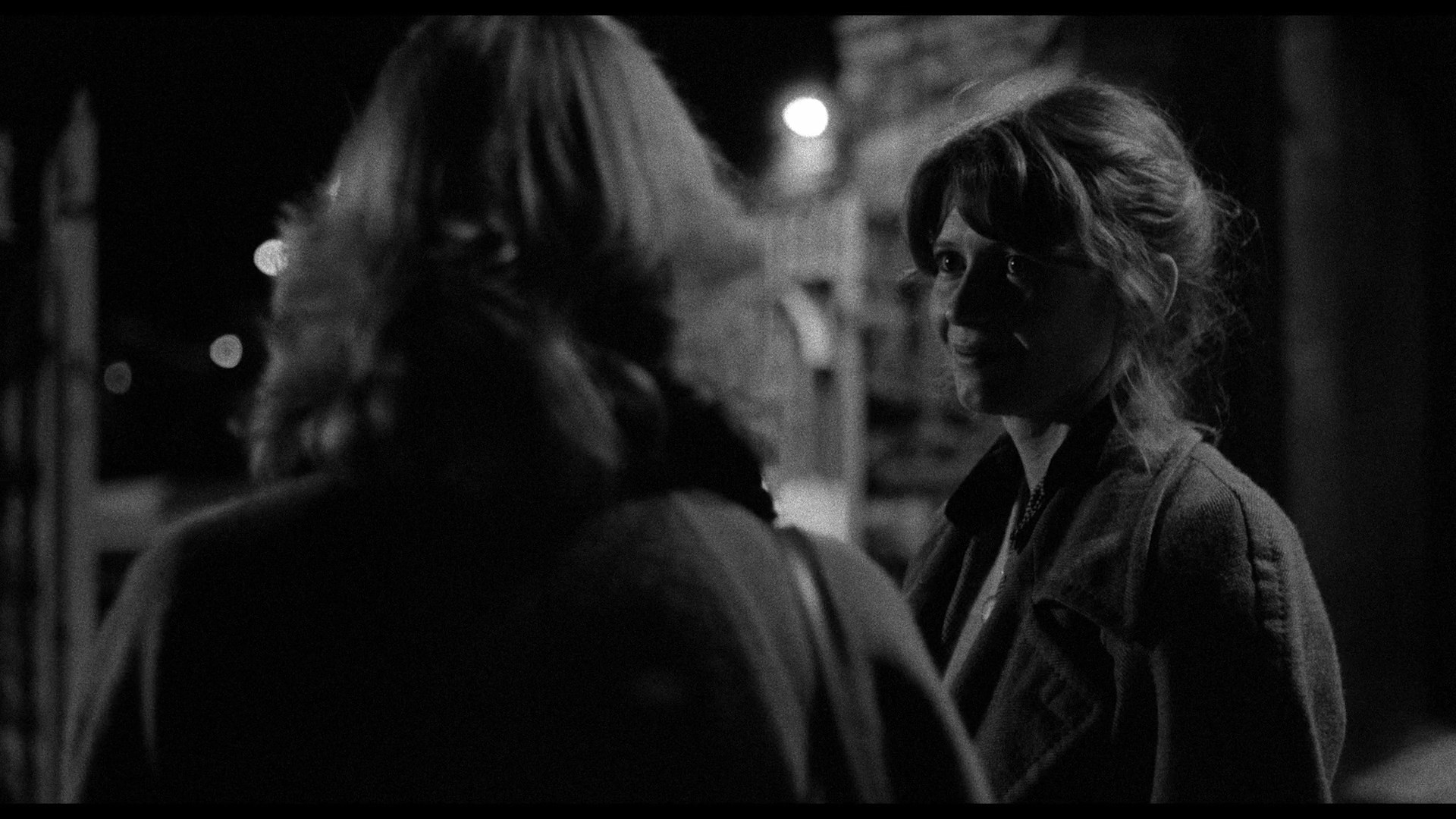 film's
film's 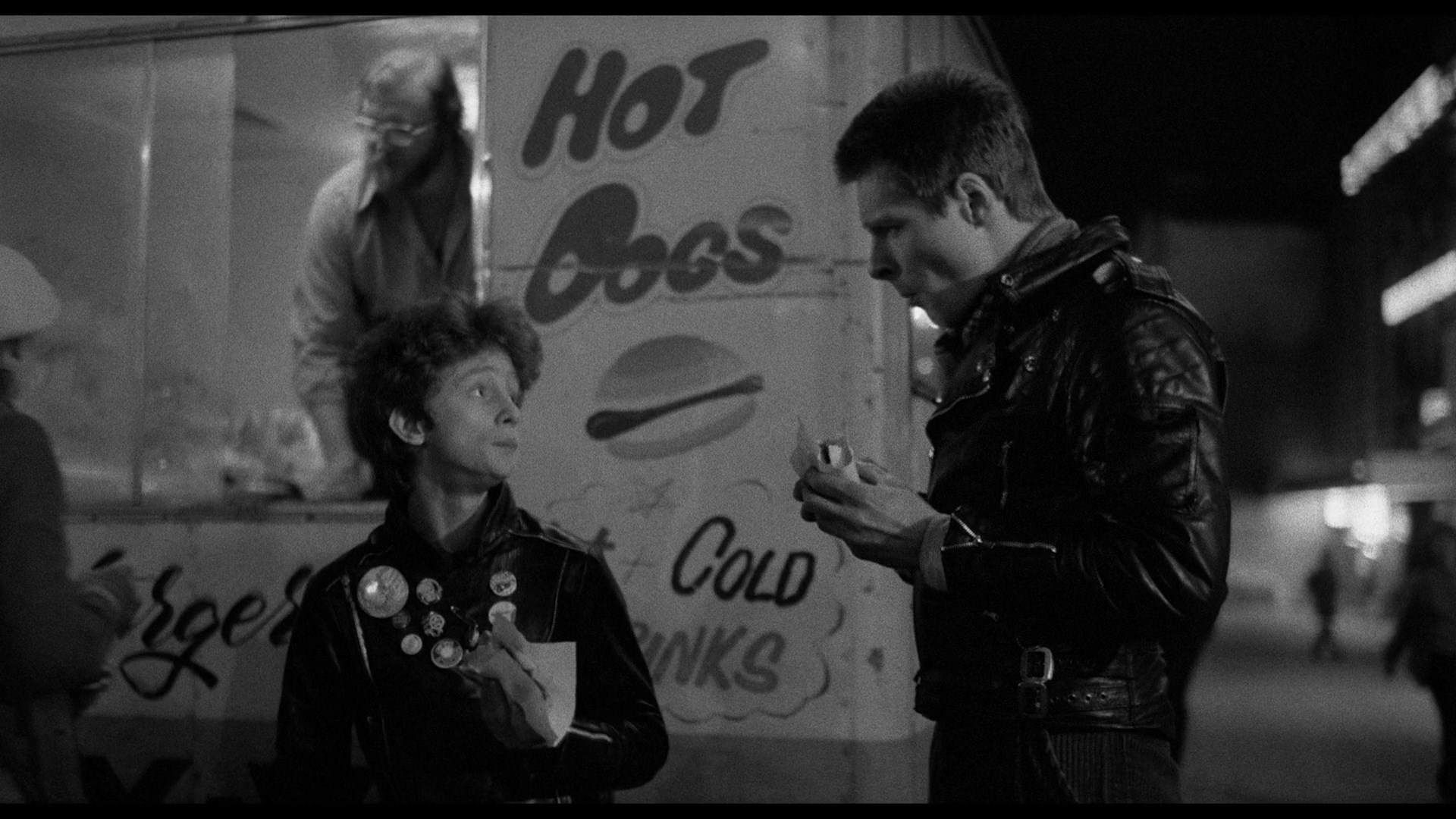 production, influences, and formidable soundtrack.
production, influences, and formidable soundtrack.
In 2021, a much-improved restoration of the film from the BFI brought Radio On back into circulation on U.S. (from Fun City Editions) and U.K. (BFI) Blu-ray looking far better than virtually anyone out there could have seen it before. The original cinematic texture is finally back intact here, and it makes a big difference in sinking into the film's hypnotic mood and appreciating its extensive use of the transforming English scenery as a major player on screen. The DTS-HD MA English 2.0 mono track (with optional English SDH subtitles) is also sharp as a tack. The U.S. disc ports over Radio On (Remix), the trailer, and the Petit-Griffiths video interview, while also adding an exclusive new audio commentary by Kier-La Janisse (director of Woodlands Dark and Days Bewitched) that also works nicely as a companion of sorts to her excellent earlier track for Decoder. There's a lot to enjoy here including an explanation of the music rights situation (which involved fortuitous communications with Stiff Records, Bowie, and Kraftwerk), the inspiration of Get Carter and Two-Lane Blacktop, the significance of a "tragic haircut," the role of New German Cinema in the film's existence, a geographical connection to J.G. Ballard, the story behind Sting's early screen appearance, and much more. Also exclusive to the Fun City release is "Before the Explosion of the Image Bank" (37m16s), a new and more general video interview with Petit about his childhood as an army brat, his early lessons in narrative economy and the example of Roger Corman, the process of putting the soundtrack together, the odd request for him to direct the Miss Marple movie A Caribbean Mystery, and more. Both releases feature "A Little bit Kitsch, But Ice Cold: Retro-futurism in Focus" (51m34s), an audio recording of Petit and BFI Video Publishing’s Vic Pratt dissecting the role of music in the film, the taxi conversation with Wenders that led to him directing the film himself, the cold shooting conditions, and the reasoning behind making the main character a DJ. Also included is a 4m42s image gallery (including some nice production shots) and an insert booklet featuring an assortment of essays, stills, and a cast listing. In contrast, the BFI disc (which also ports over the Petit-Griffiths interview, the 1998 follow-up short film, and trailer) has a 54-minute "Cinematic Windscreen" interview with Jason Wood (Creative Director of Film & Culture at Manchester’s HOME), a 1991 "Coping with Cupid" 18-minute short film by Viv Albertine, and two 1970s roadway public information films, "The Motorway File" and "L for Logic."
Fun City Editions (Blu-ray)
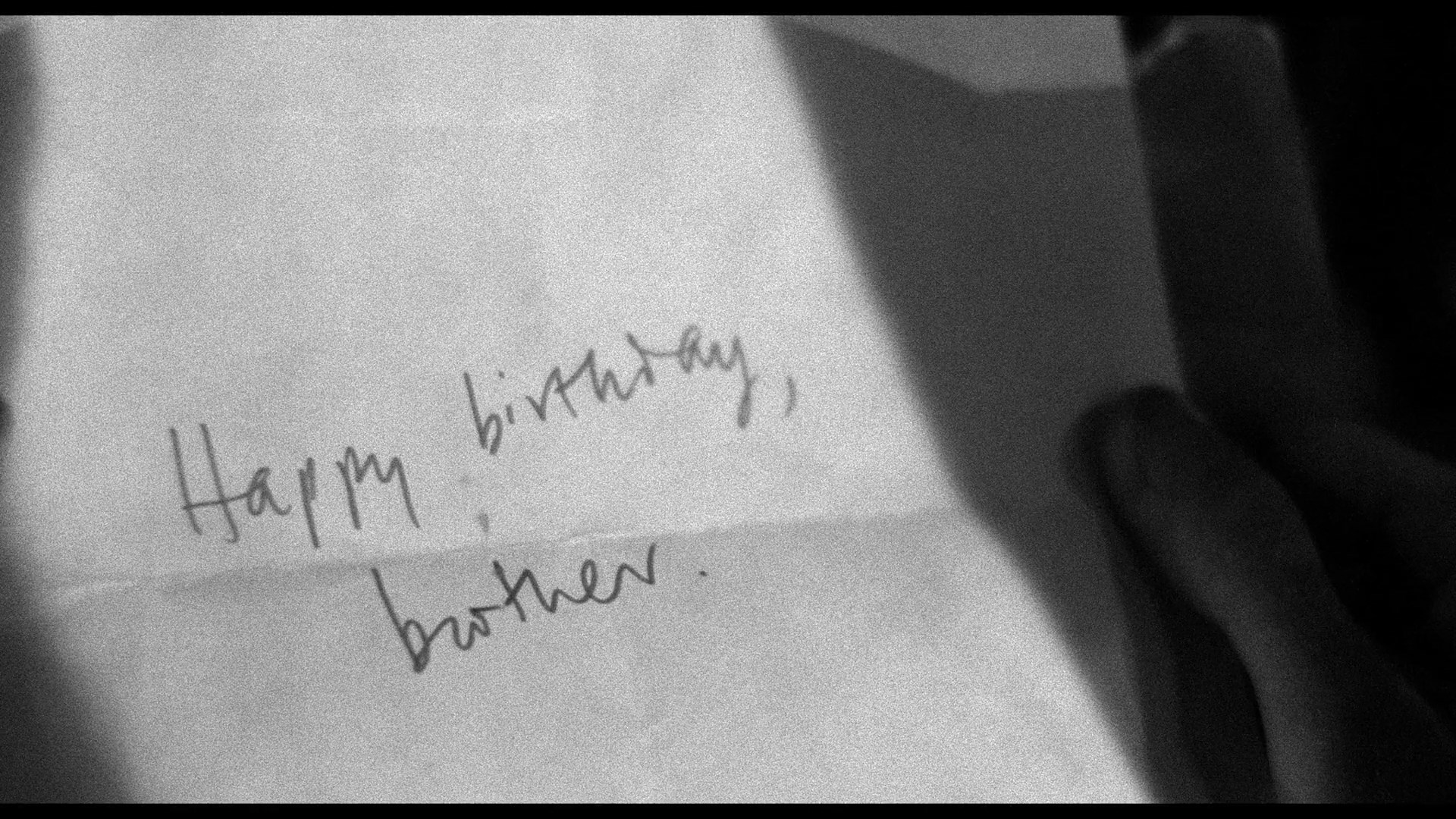
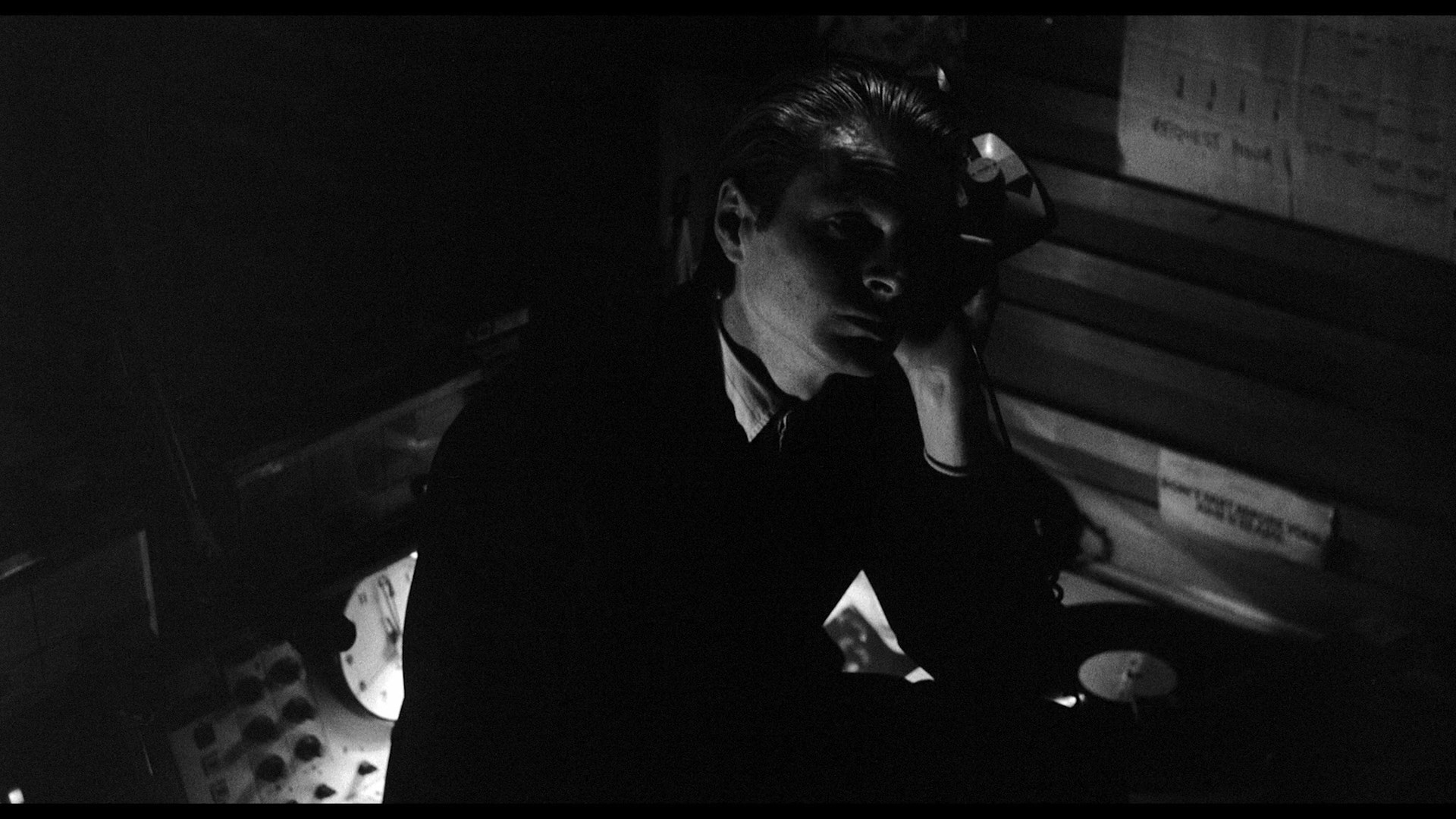
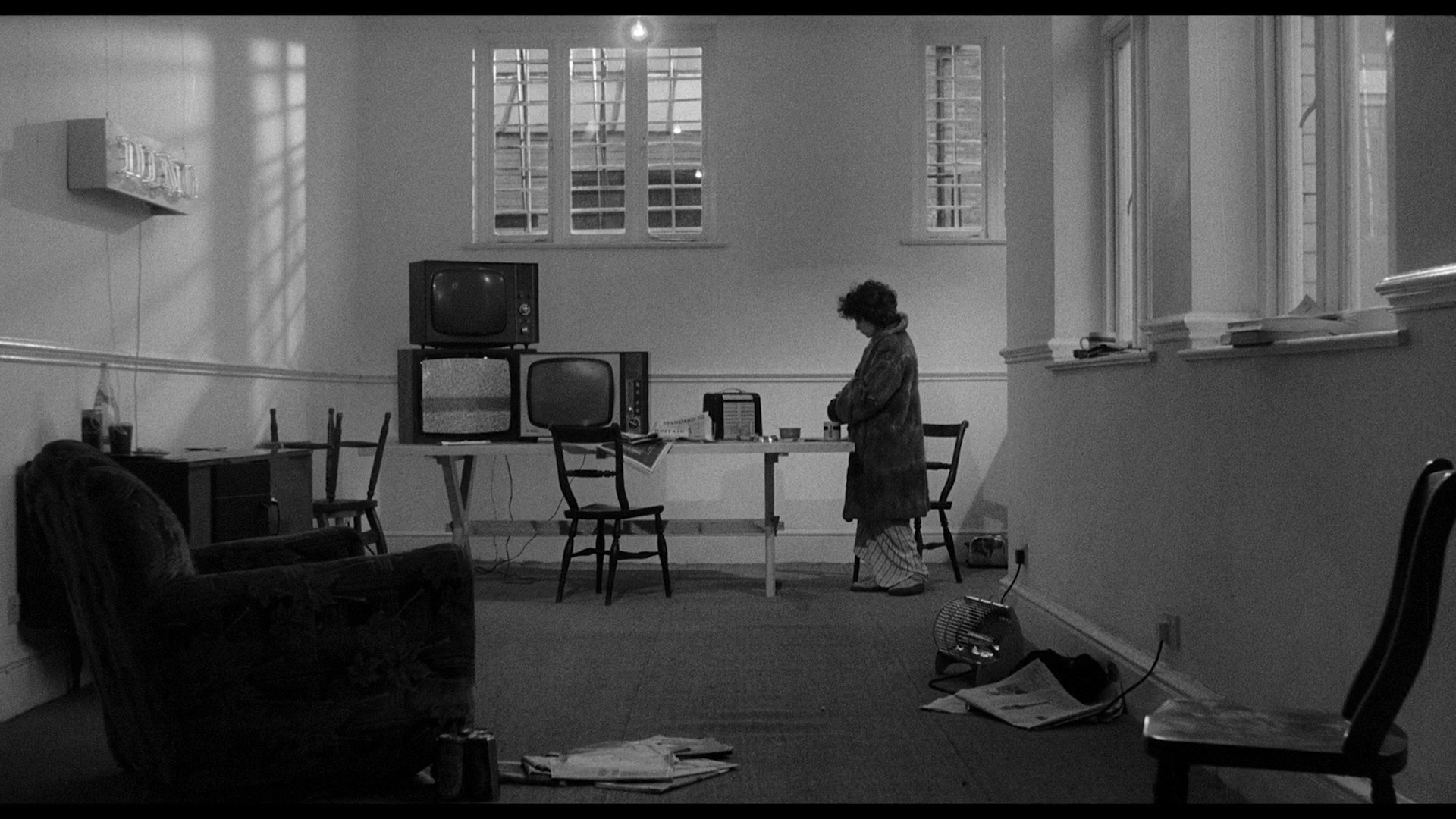
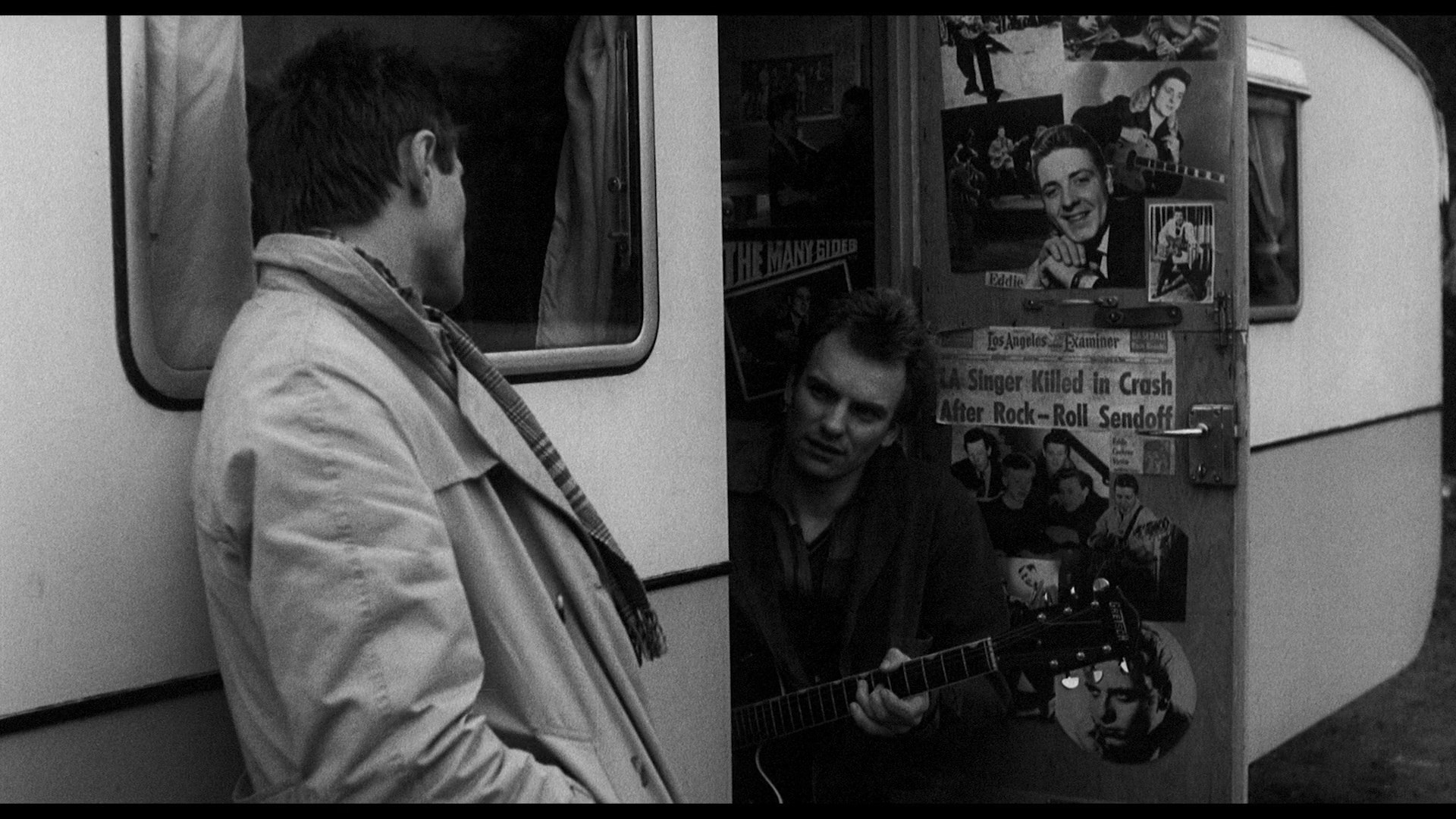
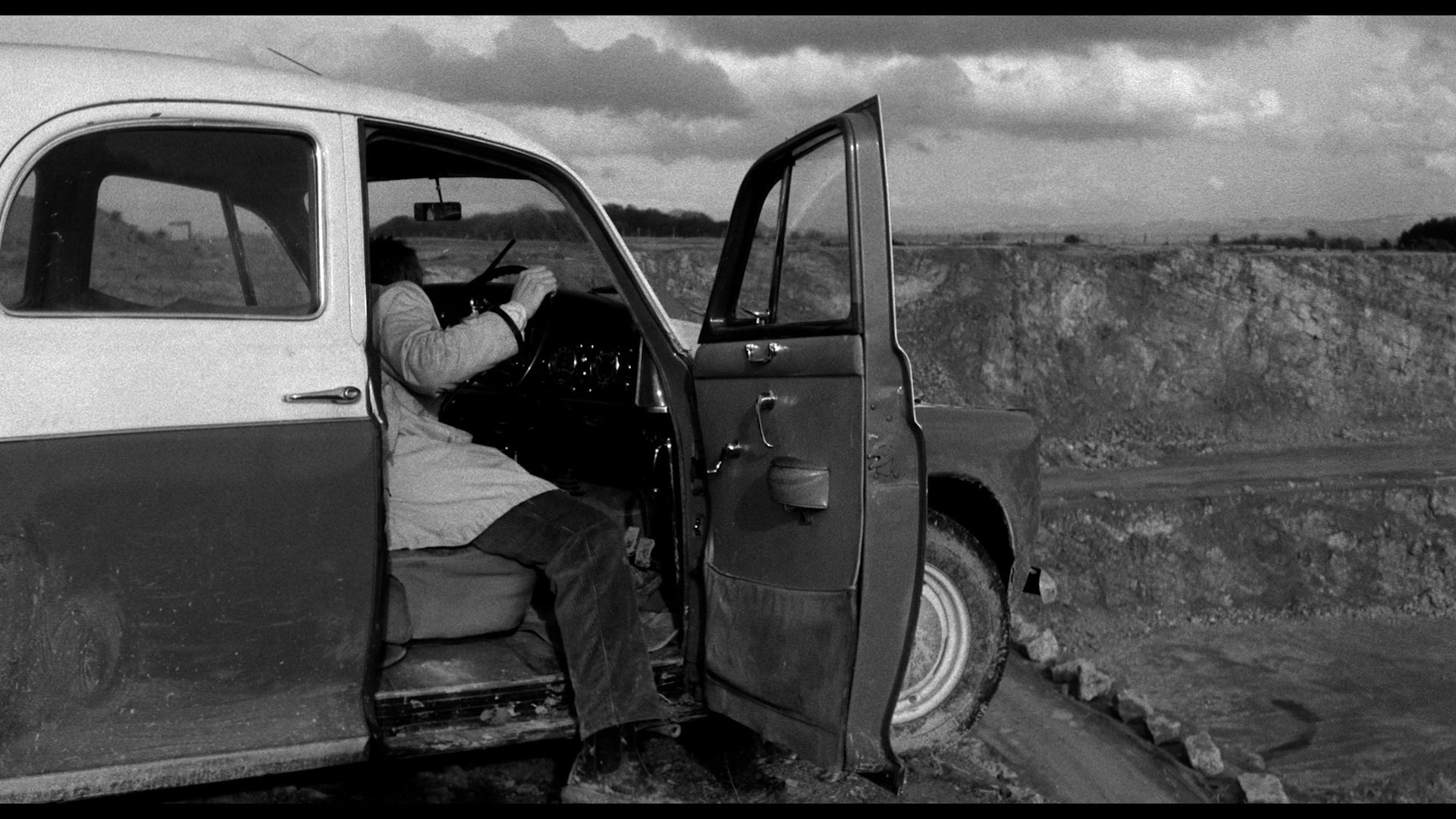
Plexifilm (DVD)
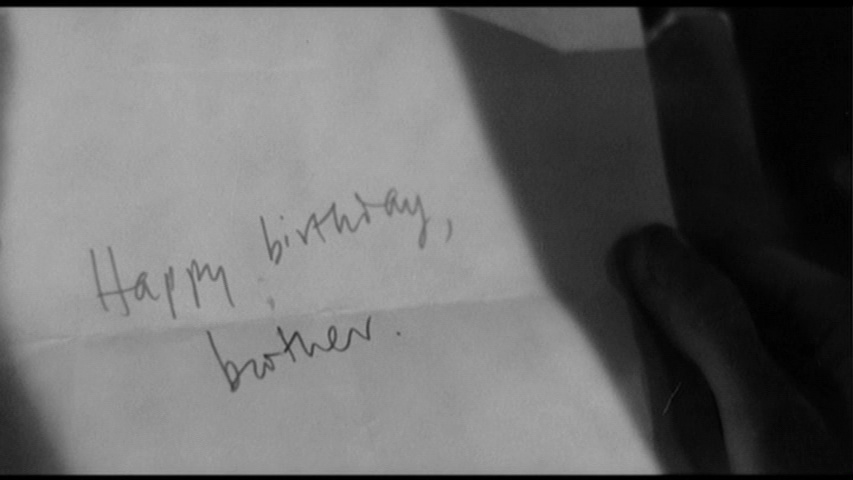
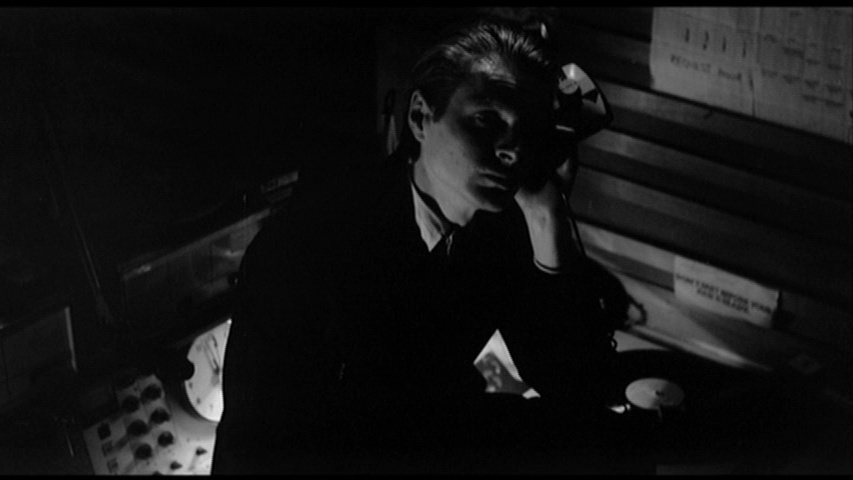
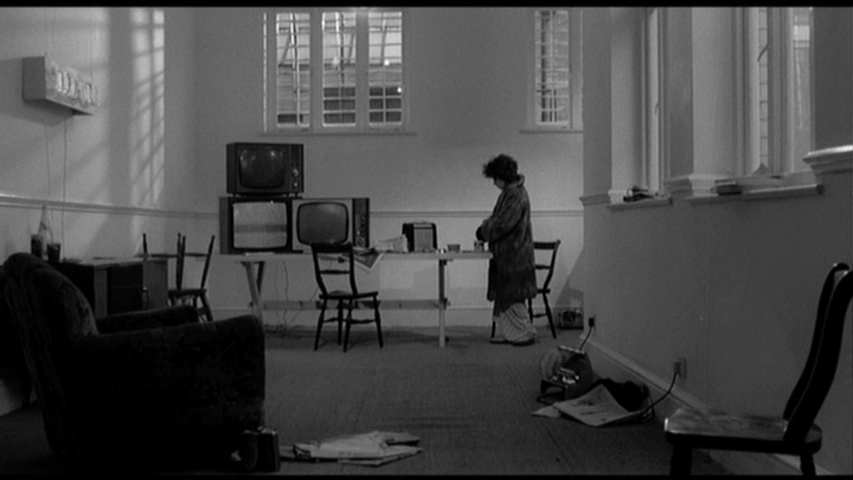


Reviewed on January 17, 2022





 film down
film down  to its core, Radio On is a fascinating, black-and-white intersection between the beautiful monochrome road films of New German Cinema (right down to retaining Wim Wenders as an associate producer here, plus his camera operator Martin Schafer as cinematographer and funding from Wenders' Road Movies Filmproduktion) and the hip, modernist strain of indie film that would become a mainstay throughout the '80s (and an explosion in the '90s). That latter aspect is most obvious in its incredible soundtrack, which opens with David Bowie's hybrid English-German recording of "Heroes" and offers a slate of great new wave, electronic, and punk offerings from Kraftwerk, Devo, Robert Fripp, Wreckless Eric, Lene Lovich, and Ian Dury & The Blockheads -- not to mention some acoustic strumming and singing from Sting, whose first hits with The Police had just landed.
to its core, Radio On is a fascinating, black-and-white intersection between the beautiful monochrome road films of New German Cinema (right down to retaining Wim Wenders as an associate producer here, plus his camera operator Martin Schafer as cinematographer and funding from Wenders' Road Movies Filmproduktion) and the hip, modernist strain of indie film that would become a mainstay throughout the '80s (and an explosion in the '90s). That latter aspect is most obvious in its incredible soundtrack, which opens with David Bowie's hybrid English-German recording of "Heroes" and offers a slate of great new wave, electronic, and punk offerings from Kraftwerk, Devo, Robert Fripp, Wreckless Eric, Lene Lovich, and Ian Dury & The Blockheads -- not to mention some acoustic strumming and singing from Sting, whose first hits with The Police had just landed. where he hopes to find out some answers, but what's set up as a mystery turns into a
where he hopes to find out some answers, but what's set up as a mystery turns into a  string of encounters ranging from very brief to lengthy with the landscape delivering a wide variety of people along the way. Among them is Ingrid (Kreuzer), played by Wenders' onetime wife and cinematic muse in his classic road trilogy (Alice in the Cities, Kings of the Road, The Wrong Move) and The American Friend, another of the nods included by writer-director Chris Petit in his feature debut; the rest of his career is relatively more accessible including his 1982 remix-style interpretation of P.D. James' An Unsuitable Job for a Woman and a trip to West Germany with the thriller Chinese Boxes. Anyone expecting his later thriller work to be mirrored here will probably be baffled by the lack of a typical question-and-answer narrative, but if you're on its music-propelled wavelength at the beginning, you should click with it rather quickly.
string of encounters ranging from very brief to lengthy with the landscape delivering a wide variety of people along the way. Among them is Ingrid (Kreuzer), played by Wenders' onetime wife and cinematic muse in his classic road trilogy (Alice in the Cities, Kings of the Road, The Wrong Move) and The American Friend, another of the nods included by writer-director Chris Petit in his feature debut; the rest of his career is relatively more accessible including his 1982 remix-style interpretation of P.D. James' An Unsuitable Job for a Woman and a trip to West Germany with the thriller Chinese Boxes. Anyone expecting his later thriller work to be mirrored here will probably be baffled by the lack of a typical question-and-answer narrative, but if you're on its music-propelled wavelength at the beginning, you should click with it rather quickly.  film's
film's  production, influences, and formidable soundtrack.
production, influences, and formidable soundtrack. ![]()